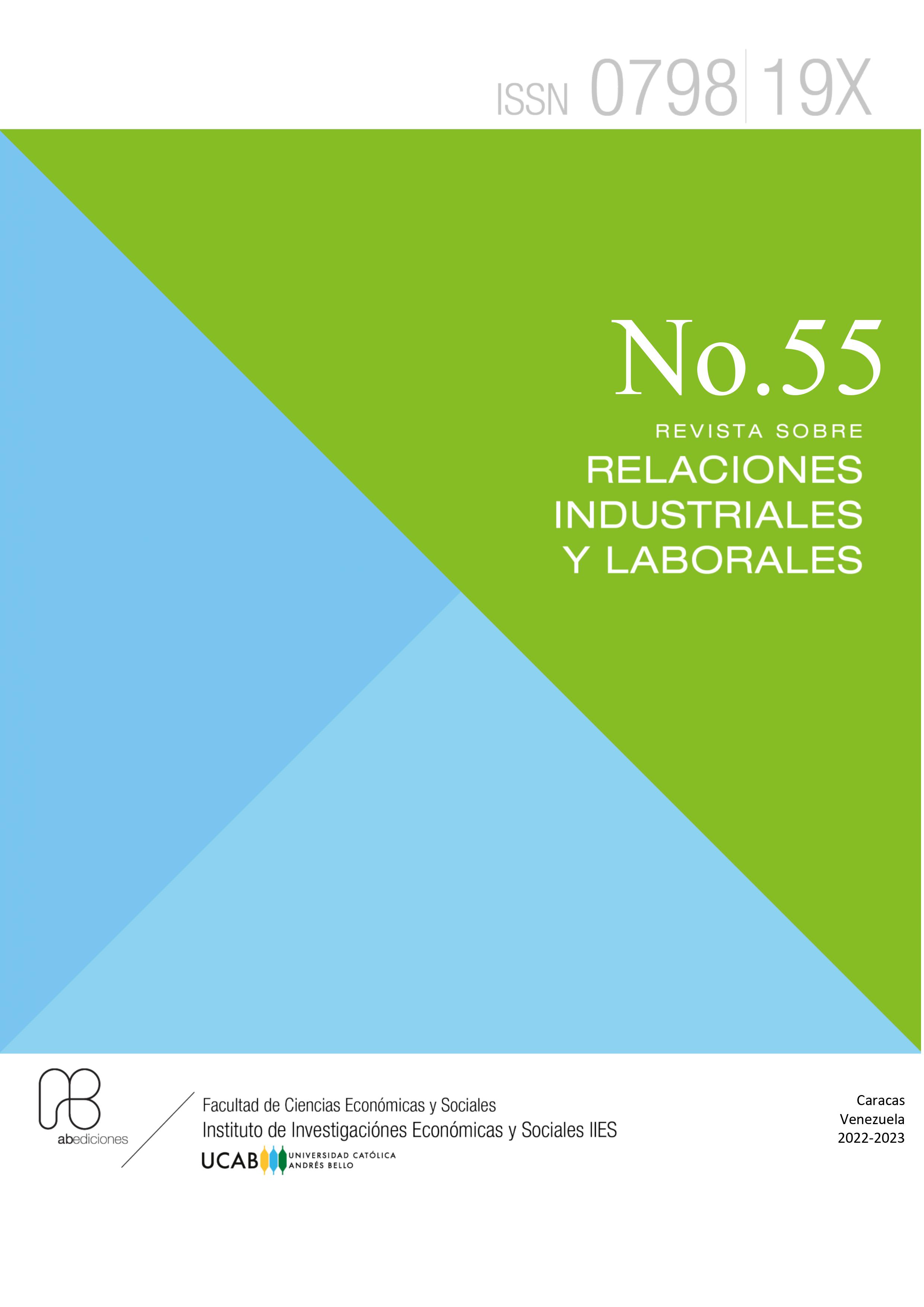Optimizing Efficiency in Work Teams. Case Study at the Executive Level in a Venezuelan Company in the Technology Sector
Keywords:
work, team, group, efficiency, executive, optimizationAbstract
An intervention session was implemented at the team level to improve the effectiveness of the executive team in a Venezuelan company in the Technology sector. The study is part of the Action-Research context. For this, as a methodological process, the following phases were complied with: (a) Diagnose the level of effectiveness of the executive team in the company under study in order to identify and/or characterize the conditions that affect its operation; (b) Intervene at the team level to improve the effectiveness of the members that comprise it and; (c) Evaluate the results of the execution of the proposed intervention to improve the effectiveness of the executive team and, based on them, suggest the reinforcements that may be required for its institutionalization. Through the examination, it was possible to detect the factors that affect the development of the company under study and demand a new push in the functioning of the executive team. The study was carried out with a group made up of eleven individuals who occupy directive and managerial positions in the organization. It was possible to show that the operation of the equipment is not very effective. Based on the results, a strategy was formulated to enable spaces towards the optimization of efficiency in this segment. The results of the intervention session were evaluated from the reactions of the participants.
References
Aamodt, M. (2010). Psicología Industrial/Organizacional: Un enfoque aplicado. 6ta Edición. México: Cengage Learning Editores, S.A. de C.V.
Aiteco Consultores: Desarrollo y Gestión (s.f). El trabajo en equipo: Equipos eficaces https://www.aiteco.com/categoria-gestion-de-equipos/ (Consultado: Octubre 27, 2019).
Arias, F. (1999). El Proyecto de Investigación: Guía para su elaboración. 3era Edición. Caracas: Episteme.
Asamblea Nacional Extraordinaria FECLAVE (1998). Código de Ética Profesional del Licenciado en Administración. Caracas: Federación de Colegios de Licenciados en Administración de Venezuela.
Balestrini, M. (2002). Cómo se elabora el Proyecto de Investigación. 6ta Edición. Caracas: BL Consultores Asociados.
Blanco, K. (2014). Relación entre la confianza en el equipo de trabajo y la percepción de efectividad. Trabajo de Grado de Licenciatura no publicado, Universidad Católica Andrés Bello, Caracas, Venezuela.
CDCHT - UCAB (2017). Código de ética de investigación de la UCAB. Caracas: Universidad Católica Andrés Bello.
Consejo Universitario UCAB (2017). Reglamento General de los Estudios de Postgrado. Caracas: Universidad Católica Andrés Bello.
Consejo Universitario UCAB (2017). Reglamento sobre el Régimen Disciplinario Aplicable a los Alumnos. Caracas: Universidad Católica Andrés Bello.
Cummings, T., y Worley, C. (2007). Desarrollo Organizacional y Cambio. 8va. Edición. México: Thomson.
Díaz, J. (2018). Proyecto de Transformación hacia una Cultura Organizacional. Caracas: INFOCENT, C.A.
Gómez, I. (2019). Alineación de Equipos
http://www.muraconsultoria.com/alineacion-de-equipos/ (Consultado: Noviembre 25, 2019).
INFOCENT (2019). Cónozcanos. Soluciones. Servicios. https://www.infocent-latam.com/ (Consultado: Octubre 27, 2019).
Jiménez, K. (2012). Diagnóstico del Trabajo en Equipo en Aggreko de Venezuela. Trabajo de Grado de Especialización no publicado, Universidad Católica Andrés Bello, Caracas, Venezuela.
Liendo, J. (2011). Conversatorio sobre Trabajo en Equipo. Caracas, s.f: INFOCENT.C.A.
López, R. (2015). Cómo mejorar la eficacia en los Equipos de Trabajo. https://blogs.eitb.eus/inteligenciaemocional/2015/09/11/como-mejorar-la-eficacia-en-los-equipos-de-trabajo/ (Consultado: Noviembre 02, 2019).
Morles, V. (1997). Planeamiento y Análisis de Investigaciones. 9na Edición. Caracas: Eldorado.
Namakforoosh, M. (2002). Metodología de la Investigación. México: Editorial Limusa, S.A de C.V.
Pineda, E. B., De Alvarado, E. L. y H. de Canales, F. (1994). Metodología de la Investigación: Manual para el desarrollo de personal de salud. 2da Edición. Washington: Organización Panamericana de Salud.
Rivero, R. (2013). Programa de Líderes de Alto Impacto (PDLAI). Caracas: INFOCENT, C.A.
Robbins, R., y Judge, T. (2013). Comportamiento Organizacional. 15ta edición. México: Pearson.
Santaella, Z. (2003). Guía para a elaboración formal de reportes de investigación. Caracas: Universidad Católica Andrés Bello.
Schein, E. (1990). Consultoría de Procesos. EUA: Addison-Wesley Iberoamericana.
Silberman, M. (2001). The Consultant´s Tool Kit. United States of America: McGraw-Hill.
Valarino, E., Yáber, G., y Cemborain, M. (2010). Metodología de la investigación paso a paso. México: Editorial Trillas.
Valda, J. (2014). La eficacia de los Equipos de Trabajo. https://www.grandespymes.com.ar/2017/01/21/la-eficacia-en-los-equipos-de-trabajo/ (Consultado: Noviembre 05, 2019).
Yáber, G., y Valarino, E. (2007). Investigación en Administración y Gerencia, Clasificación, Organización y Gestión de la Investigación en los Postgrados de Administración y Gerencia. Revista Informe de Investigaciones Educativas, Vol. XXI pp. 35-56.


